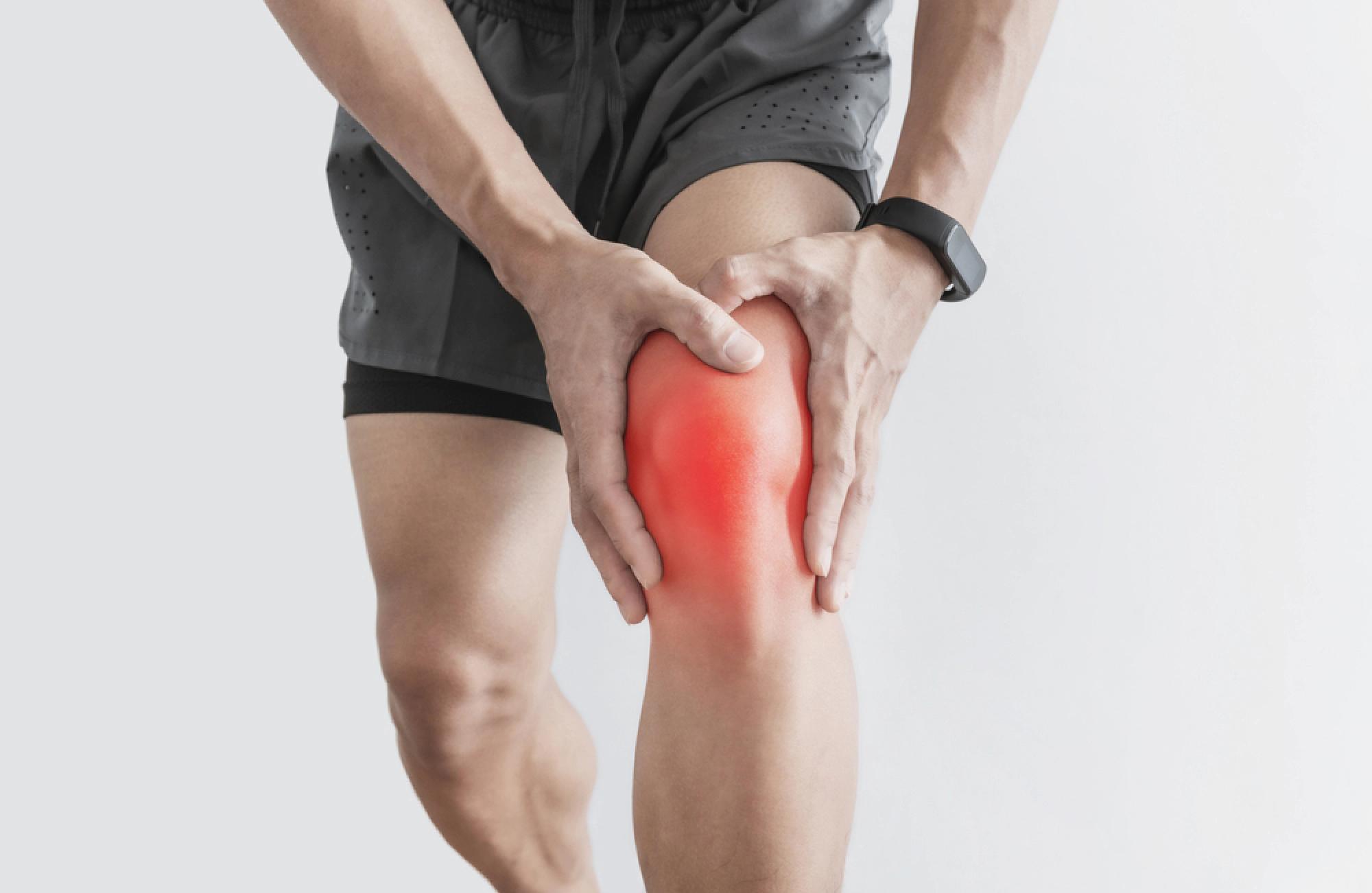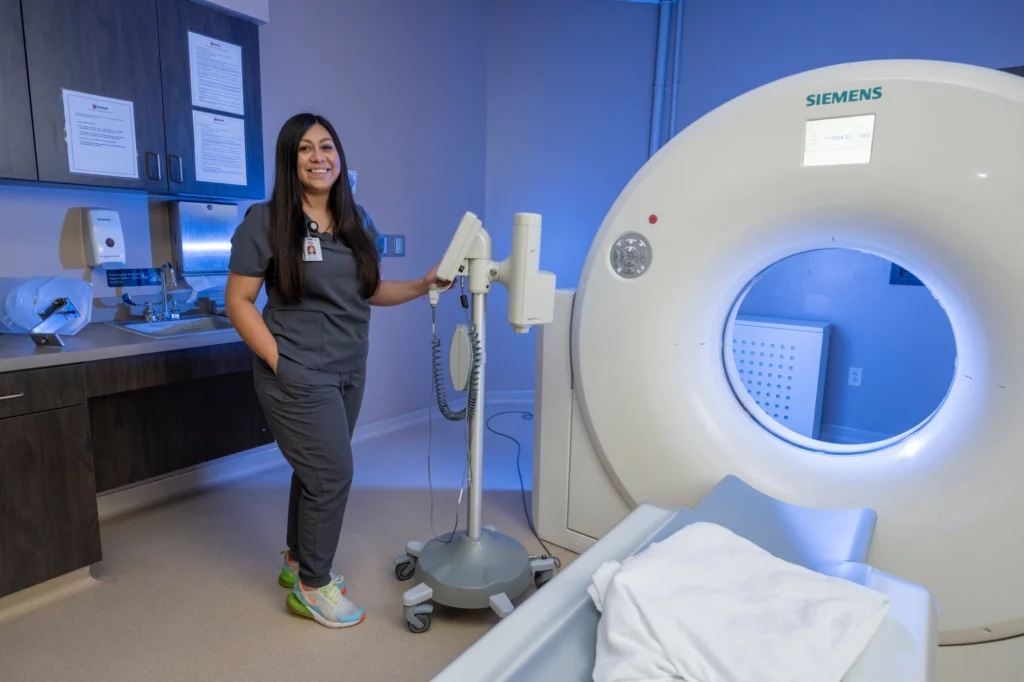When to Go to the ER for Knee Pain
Common Injuries
•
Jan 18, 2024

It can be difficult for many people to know when to go to the ER for knee pain versus when your injury is not a medical emergency. Knee pain is a common complaint — especially from athletes and other active people — that can arise from various causes, from aging to minor strains to severe injuries. As we get older, our knees begin to creak and click, no matter how physically fit or young we are. It’s just a part of life!
However, being able to spot knee injury symptoms and scenarios that require urgent medical attention can help you know when to go to the ER for knee pain to get the proper and timely treatment you need.
The emergency medical staff at Complete Care are here to help you determine when medical care for knee pain is necessary and when you can use at-home remedies to ease your pain.
Knee injury symptoms
When discussing knee injury symptoms, it’s important to understand the difference between acute pain symptoms and more severe symptoms. A little pain here and there is not too much cause for concern, but sudden and persistent pain is not normal.
The following symptoms can indicate various injuries such as a knee sprain, ligament tears, meniscus damage, or fractures:
- Swelling
- Bruising
- Redness (can also be warm to the touch)
- Instability or weakness
- Stiffness
- Difficulty straightening or bending the knee
- Popping or crunching noises
If you are having trouble putting weight on your knee or it looks visibly swollen, it would be a good idea to have it checked out by a medical professional to ensure that the damage isn’t severe and that surgical intervention isn’t necessary.
When should I go to the ER for a knee injury?
If the injury occurred during a high-impact event like a fall, sports mishap (gymnastics knee injuries are particularly brutal), or hiking accident that resulted in one of the common severe hiking injuries, seeking prompt medical evaluation is advisable.
How do I know if my knee pain is serious? Here are some signs of when to go to the ER for knee pain:
- The knee injury was a result of a high-impact blow
- You heard an audible pop! or snap! at the time of the injury
- Your pain is severe
- You’re experiencing chronic or persistent pain (knee pain that won’t go away for a few weeks)
- The knee appears deformed
- The knee has a wound that is open and/or bleeding
- You can’t put any weight or pressure on the knee
- You have difficulty walking
- The pain doesn’t improve with rest, ice, compression, and elevation (R.I.C.E) or over-the-counter medications
When in doubt, it’s always safest to seek help when an injury or accident occurs. Sometimes at-home remedies such as hot or cold packs and rest can only help manage the pain but not get to the root of the problem.
Seeking emergency treatment from a freestanding emergency room like Complete Care can help you quickly establish a personalized treatment plan and prevent any further complications from developing with your knee
What will the ER do for knee pain?
When you arrive at a Complete Care facility, we will run diagnostic tests using X-rays and CT scans to figure out what damage was done to your knee. After getting your results in just a few minutes, we will determine exactly what type of treatment plan you need. Treatments may involve immobilization with a brace, splint, or crutches, and pain management.

“I went into this ER with a swollen knee of unknown cause, every person I met (the one who checked me in, both nurses that took vitals and set up my IV, and Dr. Miranda) was so kind and gentle and explained every step when it came to draining my knee and sending in blood for testing! They’re amazing!”
Cassidy D. | Complete Care Colorado Springs Patient
Trust Complete Care with your knee pain symptoms
While knee pain can be a normal part of life, it should not be ignored under certain circumstances. Understanding when to go to the ER for knee pain can help you avoid making the condition or symptoms worse.
Experiencing knee pain that won’t go away, sudden and severe pain, significant swelling, the inability to bear weight, or any injury causing an obvious deformity will require a trip to the emergency room. Also, if you hear any audible popping or snapping noises at the impact of the injury, that is a clear sign that damage has been done to your knee and it should be examined. If you’re looking for the right ER to entrust with your knee care, Complete Care has you covered.
Our patients say that Complete Care is the best emergency room due to our low wait times, fully-equipped, hospital-grade facilities, and compassionate staff. We can provide quality, efficient care for almost any injury or condition, especially knee injury symptoms. You and your loved ones deserve the best care possible.
With multiple locations in Texas (Austin, Corpus Christi, Dallas/Fort Worth, East Texas, Lubbock, and San Antonio) and in Colorado Springs, we are open 24/7 to help you when you need us most.
More Helpful Articles by Complete Care:
- When to Go to the ER After a Skiing Accident
- When to Go to the ER for the Flu
- How to Prevent a Slip and Fall Injury
- The Dangers of Overeating on Thanksgiving
- Turkey Fryer Safety: What You Need to Know
